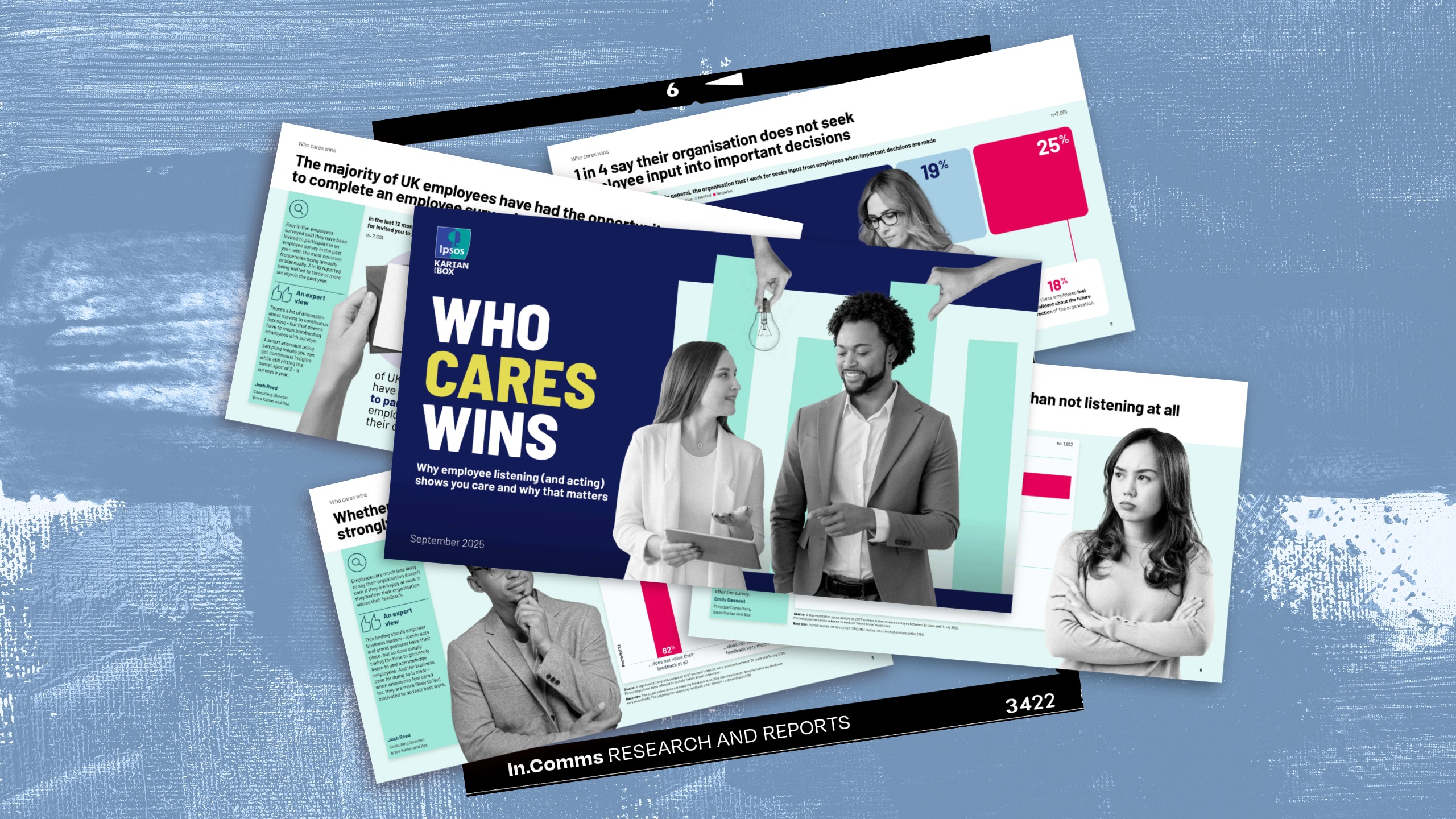Employee surveys can be an important tool in the internal comms armoury – but only if organisations act on the feedback received.
Believing that an organisation cares about employee happiness is linked to higher staff motivation and advocacy, according to research published by Ipsos Karian and Box.
Who cares Wins: The Employee Listening Index, based on a survey of 2,027 UK employees who work for organisations with more than 500 staff, reveals that 35 per cent of UK employees believe their organisation ‘does not care about whether I am happy at work’.
Of that cohort, 42 per cent feel motivated to do a great job at work, compared to 85 per cent of respondents who do believe their employer cares.
Employees are less likely to say their employer doesn’t care if they’re happy if they believe it values their feedback. While 82 per cent of employees say their employer doesn’t care when they believe it ‘does not value their feedback at all’ the figure falls to 24 per cent when staff feel their feedback is valued either a fair amount or a great deal.
Listening, but not acting on feedback, was identified in the report as being more damaging than not listening at all.
Of the research respondents who are invited to take part in an employee survey but do not see action based on results, 61 per cent think their organisation doesn’t care, while 42 per cent of respondents who are not invited to take part in a survey hold that belief. This figure drops to 23 per cent for those respondents who are invited to take part in a survey and also see action based on results.
Sending two to four surveys per year is the 'sweet spot' where employees are most likely to feel that their organisation conducts the right number of surveys. That being said, the more surveys they are invited to take part in, the more likely they are to recommend their organisation as a great place to work.
“While it’s clear that more listening is linked to greater advocacy, too many similar surveys can lead to fatigue,” warned Josh Reed, consulting director at Ipsos Karian and Box. “Adopting a varied approach by experimenting with different listening formats is essential to keep the process engaging and rewarding for respondents.”

